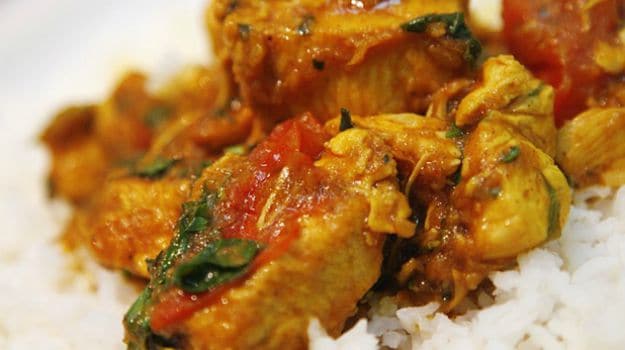Birmingham's balti curry could be given European protected food status under ambitious government plans to more than triple the number of protected food names from 63 to 200. Downing Street said the unique cooking method " which takes its name from the metal dish in which it is cooked and eaten " was among a handful of distinctive regional foods set to be awarded the prized status this summer. The Midlands curry will join the illustrious ranks of champagne and Parma ham, which are already part of the EU scheme.
Also set to clear the final regulatory hurdles over the next few weeks are Welsh laverbread " a Welsh delicacy made from cooked laver, or seaweed, and Carmarthen ham, an air-dried ham similar to serrano, which has been produced to a recipe by five generations of the same Welsh family.
The EU-backed scheme is designed to protect the reputation of regional food and drink, including traditional recipes, to promote traditional and agricultural activity, and to prevent imitation. Protected name status means that under EU law, foods such as Wensleydale cheese or Melton Mowbray pork pies can be produced only in those named parts of the world.
It is estimated that the total value of protected food names in the UK - which include Whitstable oysters, Yorkshire forced rhubarb and the Newmarket sausage - is more than "£900m. The scheme brings huge economic benefits in the longer term to local producers.
The drive to boost the number of UK protected foods to 200 " to similar levels as our gastronomic neighbours in France " has been led by the environment secretary, Elizabeth Truss, as part of her ongoing campaign to champion regional produce, including English wine.
In Birmingham, balti afficionado Andy Munro has spearheaded the application on behalf of the Birmingham Balti Restaurant Association, describing the dish as "a British fusion of Kashmiri Pakistani recipes created in the 1970s by Birmingham's new Mirpuri community". The meat is cooked off the bone rather than on, using vegetable oil instead of ghee and using dry spices alongside fresh garlic and ginger. It is cooked in the balti " the thin steel dish from which it takes its name " over a gas flame, then served in the balti and eaten using naan bread to mop up the juices.
Truss said: "Curry is a great part of our food heritage, along with fish and chips and pork pies. Let's hope the popular Birmingham balti recipe follows in the footsteps of our other iconic foods like the Cornish pasty and Fenland celery. It would be a wonderful boost for this great city's world famous Balti Triangle."
Chris Rees, whose family submitted an application for protected status for Carmarthen ham four years ago, said: "There's been a lot of work involved, but we are delighted to hear that we are close to the finishing line. I think it will be worth it to get recognition of our unique product. Only four people know the recipe " my wife and I and two members of staff."
He joked that there was a family story that "when the Romans came to Britain, and settled in Carmarthen, they stole the recipe and returned to Italy and called it Parma ham. But ours is less processed than theirs."
Watercress and London Cure smoked salmon are also nearing final approval.
The boost for British food production was announced at the Royal Welsh Show in Powys in a package of measures unveiled by the prime minister, David Cameron, the aim of which is to increase UK food and farming exports by "£7bn. Cameron hailed the UK food and drink sector for being "highly innovative, introducing around 16,000 new products every year " more than France and Germany combined and second in the world only to the US".








